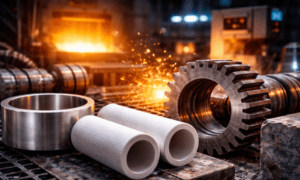Installing a new boiler is a significant investment in your home or business’s infrastructure. It is crucial to understand the installation process, as well as the importance of ongoing maintenance to ensure your boiler operates efficiently and safely over its lifespan. This article provides an in-depth look at boiler installation and the key maintenance practices you should follow to maximize performance and durability.
Planning for Boiler Installation
Before a boiler is installed, several preparatory steps must be taken to ensure that the process goes smoothly and the boiler functions efficiently:
- Choosing the Right Location: The location of your boiler can impact its efficiency and ease of maintenance. Boilers should be installed in a well-ventilated area that is easily accessible for maintenance and boiler repair Fife.
- Understanding Local Codes and Regulations: Each area has specific building codes and regulations related to boiler installation, including requirements for ventilation, piping, and safety. It is essential to understand and comply with these regulations to ensure your installation is legal and safe.
- Selecting a Qualified Installer: Professional installation by a certified technician is crucial for the safe and efficient operation of your boiler. Qualified installers can also provide valuable advice on the type of boiler that best suits your needs based on the building’s size and your heating requirements.
The Installation Process
Boiler installation is a complex process that typically involves the following steps:
- Removal of the Old Boiler: If replacing an existing boiler, the old unit must be safely removed and disposed of according to local regulations.
- Preparing the Installation Site: This might include updating pipework and radiators to ensure compatibility with the new boiler.
- Installing the New Boiler: The new unit is securely installed, connected to the existing heating system, and tested for proper function.
- Final Checks and Adjustments: After the boiler is installed, it’s essential to perform a series of checks to ensure everything is operating correctly, including safety devices and control systems.
Regular Maintenance for Optimal Performance
Maintaining your boiler is critical for its efficiency and longevity. Here are some essential maintenance tasks that should be performed regularly:
- Annual Servicing: A yearly service by a qualified technician can help keep your boiler running efficiently and safely. This service includes checking all components, cleaning the boiler, and making any necessary adjustments or repairs.
- Monitoring Boiler Pressure: It’s important to check the boiler pressure regularly. A drop in pressure can indicate a leak, while too much pressure can put undue stress on the boiler.
- Bleeding Radiators: If your radiators have cold spots, this might mean that air has entered the system. Bleeding the radiators can improve efficiency and heating performance.
- Checking for Leaks and Corrosion: Regularly inspect your boiler for signs of leaks or corrosion, which can lead to inefficiencies or more severe problems down the line.
Troubleshooting Common Boiler Problems
Even with proper installation and maintenance, boilers can develop issues. Here are some common problems and their potential solutions:
- No Heat or Hot Water: This could be due to several issues, including broken diaphragms and airlocks, failure of motorized valves, issues with the thermostat, or low water levels.
- Leaking and Dripping: Leaks can occur from a variety of places but are most commonly found at pipe connections or within the boiler itself.
- Strange Noises: Banging, whistling, or gurgling noises can be caused by air in the system, low water pressure, or impending pump failure.
Investing in a Smart Thermostat
Integrating a smart thermostat into your heating system can provide enhanced control and efficiency. These devices allow for more precise temperature management and can be programmed to heat your home or business only when needed, reducing energy waste.
Importance of Using Quality Components
Using high-quality components during the installation can significantly extend the life of your boiler. This includes everything from the pipework and fittings to the boiler unit itself. Quality components resist wear and tear better and can handle the high demands of heating systems, leading to fewer breakdowns and less need for repairs.
The Role of Insulation in System Efficiency
Proper insulation of pipes and the boiler itself is crucial for maintaining heat within the system and preventing energy loss. Insulated pipes ensure that heat is delivered where it is needed without significant temperature drops, making the heating system more efficient and reducing heating costs.
Upgrading Your System with Advanced Technology
As technology advances, so do boiler systems. Consider upgrading to more advanced components like condensate pumps and modulating pumps, which can adapt their output based on real-time heating demands. These upgrades can improve the efficiency and responsiveness of your heating system, providing better temperature control and energy usage.
The Environmental Impact of Boiler Operation
Environmental considerations are increasingly important in boiler operation. Modern boilers are designed to minimize emissions and operate more cleanly than older models. Upgrading to a newer model or ensuring your boiler is correctly maintained can reduce your carbon footprint and contribute to environmental conservation efforts.
Educating Yourself on Boiler Safety
Safety is paramount when operating a boiler. Homeowners and facility managers should educate themselves on basic boiler operation and safety precautions to prevent accidents. Understanding how to properly operate your boiler system, recognizing signs of malfunction, and knowing when to call a professional can help maintain a safe environment.
The Financial Benefits of Preventative Maintenance
Investing in preventative maintenance can lead to substantial financial savings over the life of your boiler. Regular maintenance helps prevent costly breakdowns, extends the lifespan of the boiler, and ensures it operates at peak efficiency. This translates to lower energy bills and reduced expenditure on emergency repairs and replacement parts.
Future-Proofing Your Heating System
Looking ahead, consider how changes in technology and energy standards may impact your heating system. Future-proofing your system by choosing adaptable, high-efficiency boilers and staying informed about changes in energy regulations can help you make cost-effective decisions that keep your heating system compliant and competitive in a changing market.
Conclusion
Proper installation and diligent maintenance are key to ensuring that your boiler functions efficiently and lasts as long as possible. By understanding the requirements and best practices outlined in this guide, you can ensure that your heating system is reliable, safe, and cost-effective, providing comfort and warmth for years to come.
Read More From Techbullion And Businewswire.com



































